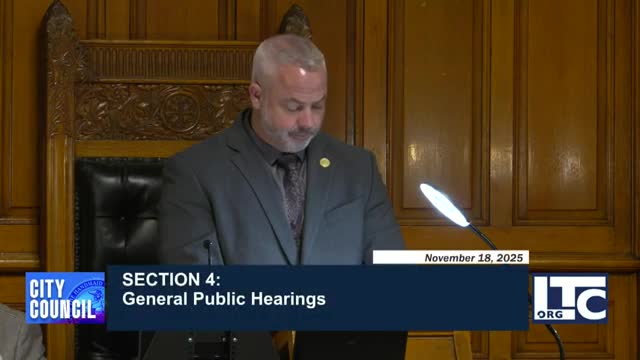Council adopts ordinance to prohibit supervised drug consumption sites after public hearing
Get AI-powered insights, summaries, and transcripts
Subscribe
Summary
After a public hearing with one resident speaker and extensive council debate about legality and public health evidence, the council voted on and adopted an ordinance to ban supervised drug consumption sites in Lowell; Board of Health staff said the board has not taken up the issue because the enabling state legislation has not passed.
The Lowell City Council held a public hearing and then voted to adopt an ordinance amending city code (chapter 2-22-23) to prohibit supervised drug consumption sites. Ryan Oates, a resident who said he had researched international and U.S. experience, urged the council to consult the Board of Health and local service providers before taking action. Several councilors said they share concerns about safety, proximity to schools and whether such sites would enable drug use; others said the council should send a message to state legislators.
Board of Health staff (Lisa Golden) told the council the board had not taken up the issue because state legislation that could legalize supervised consumption sites has not passed, so the board has not formally addressed whether its purview would include such sites. Councilors cited experiences in other cities and noted local work on syringe service cleanups (one councilor said the city collects roughly 17,800–18,000 needles annually).
Councilors who supported the ordinance framed it as a preemptive local policy and a protective measure for neighborhoods and children; those opposing or questioning it described the move as banning an activity that is currently illegal under state and federal law and said they would prefer more public‑health engagement and data from pilot programs. The clerk then took a roll-call vote as recorded in the meeting transcript.
